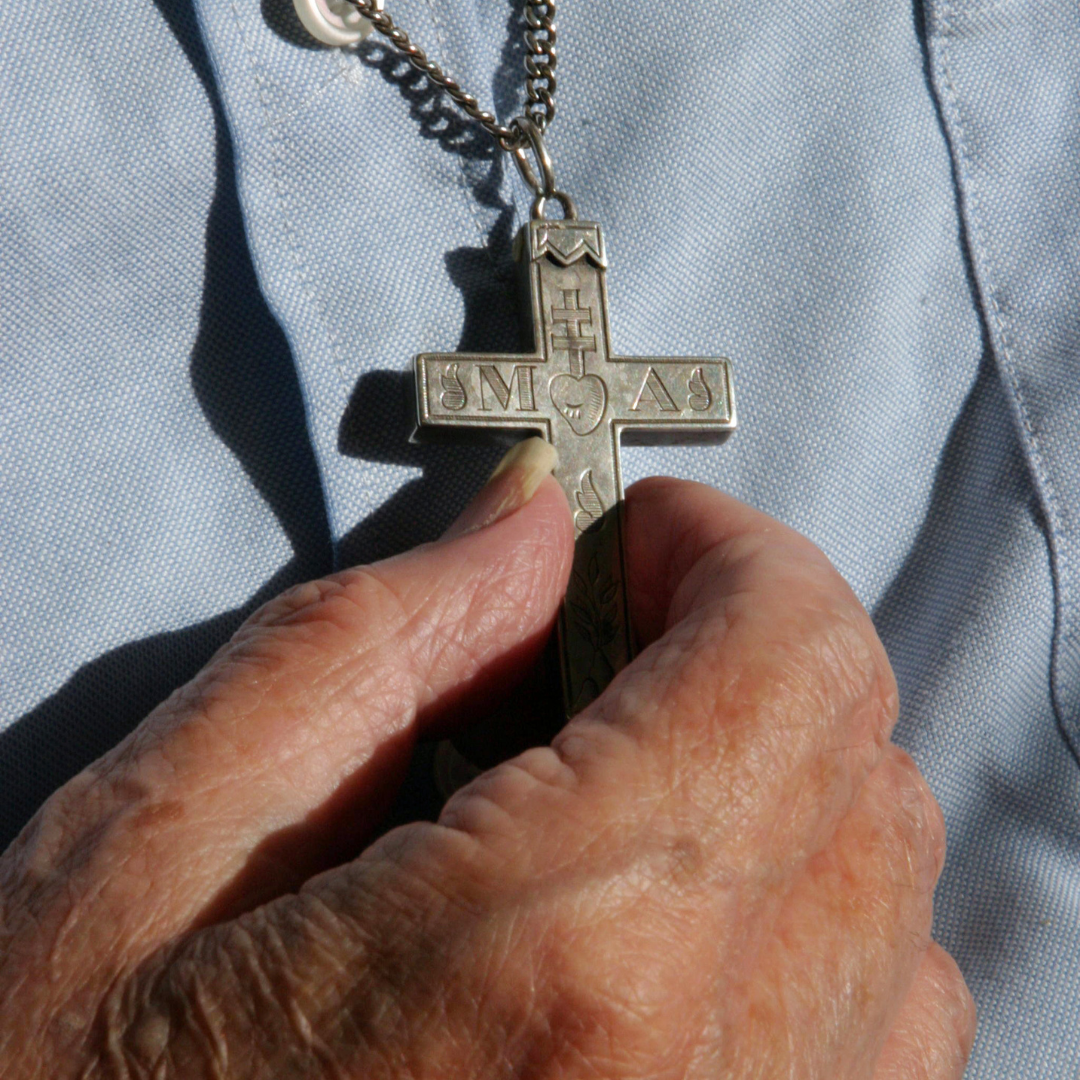In just a few days, the Church will celebrate Pentecost. I think we can best appreciate the meaning of this beautiful feast if we begin with the fact that we are all made in the image and likeness of God. Two characteristics stand out about God in whose image we are made. One characteristic is his Word and the other is his Love. In the Incarnation, God gives us his Word, and at Pentecost, he gives us his Love. Together, God gives us a new language, the language of love.
In his account of Pentecost, St. Luke describes the appearance of the Holy Spirit “as tongues of fire” that rest over the heads of Mary and the 125 disciples gathered in prayer. Luke goes on to speak of the preeminent miracle of this day in these words: "Are not all these people who are speaking Galileans? Then how does each of us hear them speaking in his native language?" (Acts 2:7-8).
Even though there were people from many different countries and language groups, each of them was able to understand Peter and the others in their own language. The multiplicity of race, language, and custom had, through the powerful Word of God’s Love, yielded to the unity and union of a single language, the language of common humanity.
On that day at least and for those few hours, there was only one people and only one language. God’s love had overcome the usual distinctions such as language, nationality, race, and gender that too often lead to divisions, distrust, hostilities, and wars. With the gift of God’s love comes the promise and the power to bring about God’s peace on the earth and the fulfillment of these words of our Creed: “I believe in the Holy Spirit, the Lord, the giver of life…[and] I believe in one, holy catholic and apostolic Church.”
The word, “catholic,” means universal. The Holy Spirit is God’s promise of a healed humanity in which differences no longer divide but are applauded as so many beautiful variations of the one Spirit. Our own St. Francis de Sales invents a new word to describe this new Spirit-filled humanity: unidiverse.
Pentecost is often seen as God’s reversal of the destructive consequences of the Tower of Babel whose story is described in Genesis (11:1-9). A people who had become proud and arrogant decided to build a tower high enough to reach the heavens. It would, they thought, provide them with ready access to God and therefore the ability to either manipulate God or become his rival. There was only one language then. The communication essential to design and build that tower, therefore, was readily at hand. But God punished their pride by making them speak in many different languages. They could no longer understand one another and, thus, they could no longer cooperate in building the tower. Soon their differences in language began to divide them. They became distrustful of one another, and that distrust quickly led to hostilities and wars. As with the story of the Garden of Eden, once again human pride, human hubris, had led to the sad, divided, and often sinful world with which we are all so familiar today.
In Jesus, God’s Word speaks to us of a new way of living and of a new way of loving. At Pentecost, God gives each of us, in the Holy Spirit, the power to live as Jesus had lived and to love as Jesus had loved. And for one brief moment, he permits the thousands gathered in Jerusalem to hear but one language that speaks to all hearts of his promise and of his power.
But God has rightly left it up to all who believe to welcome that promise and to accept that power to change and to better the world, one small act of love after another and, thus, to bring about a new world in which peace and justice reign and compassionate love is the norm; a world that welcomes the many differences among us and channels those differences in one direction: the imitation of the life and the love of Jesus.
Christianity is now over 2000 years old. Yet even in the so-called Christian civilizations, the universal brotherhood of all humankind in God through Christ has not yet been fully realized. You may ask, "What can I do? I am only one individual. What difference can I make?"
Maybe we can learn something from the story of the squirrel and the owl:
A squirrel once asked a wise old owl the weight of a single snowflake. "Why, nothing more than nothing," the owl answered. The squirrel then went on to tell the owl about a time when he was resting on a branch of a maple tree, counting each snowflake that came to rest on the branch until he reached the number 1,973,864. Then with the settling of the very next snowflake -- crack! The branch suddenly snapped, throwing the squirrel and the snow to the ground. "That was surely a whole lot of nothing," said the squirrel.
Our daily personal efforts to spread the reign of love and justice may be as light in weight as a snowflake. But by heaping our snowflakes together we will eventually be able to break the heavy branch of divisions, evil, and injustice in our world today. Our Spirit-filled efforts at the language and actions of Christian love, however small, will lead in time to a brand new world, a brand new manifestation of Pentecost!
And so we pray:
Come Holy Spirit and fill the hearts of your faithful and enkindle in them the fire of your love.
*I have taken the story at the end from Munachi E. Ezeogu, CSSP










